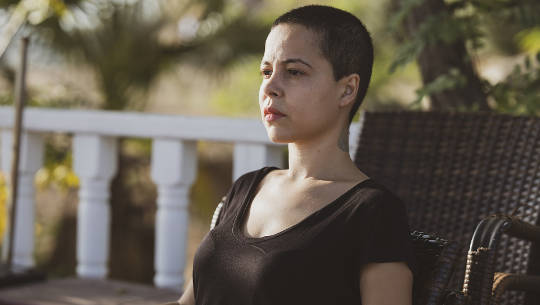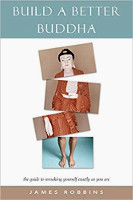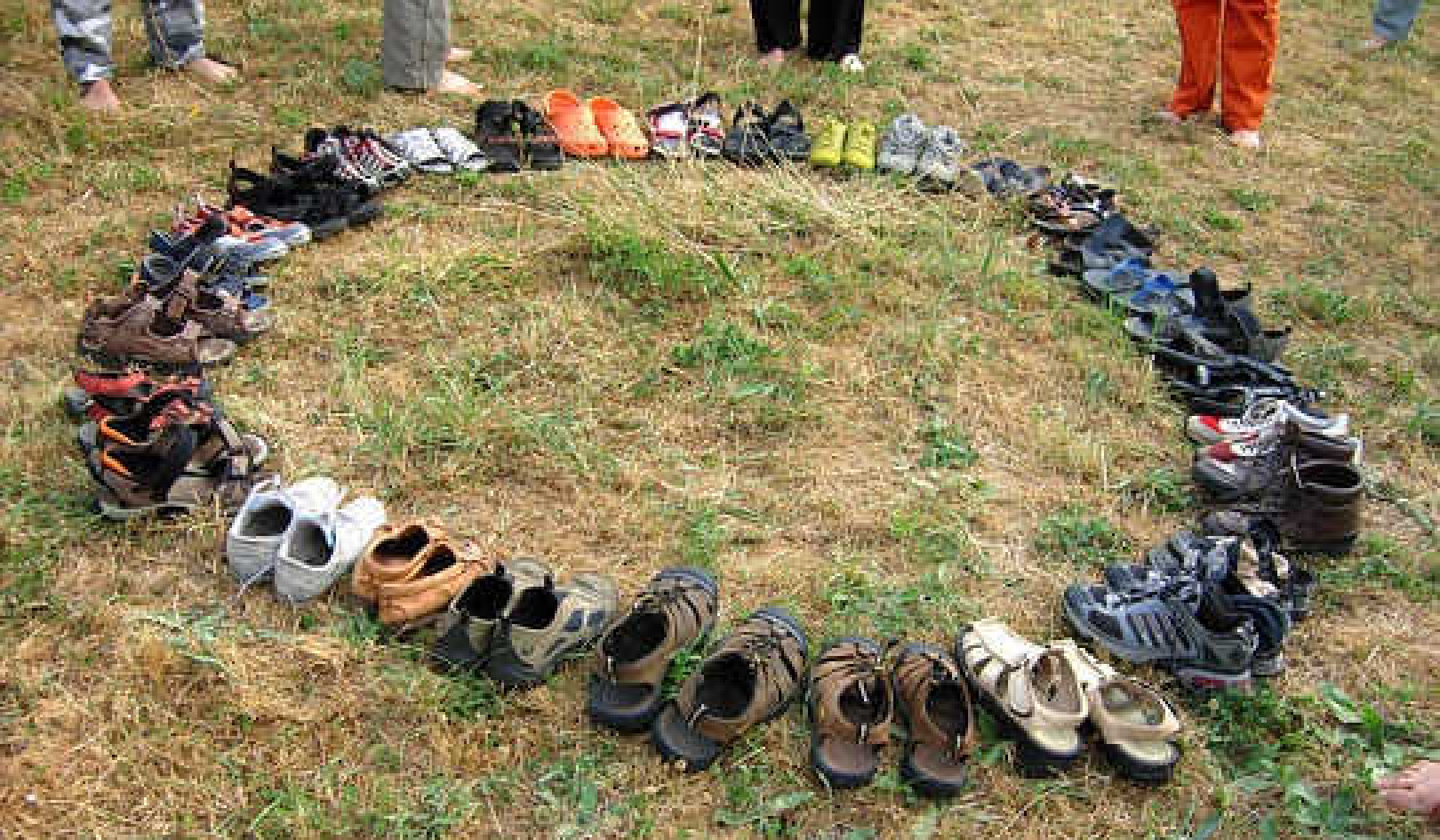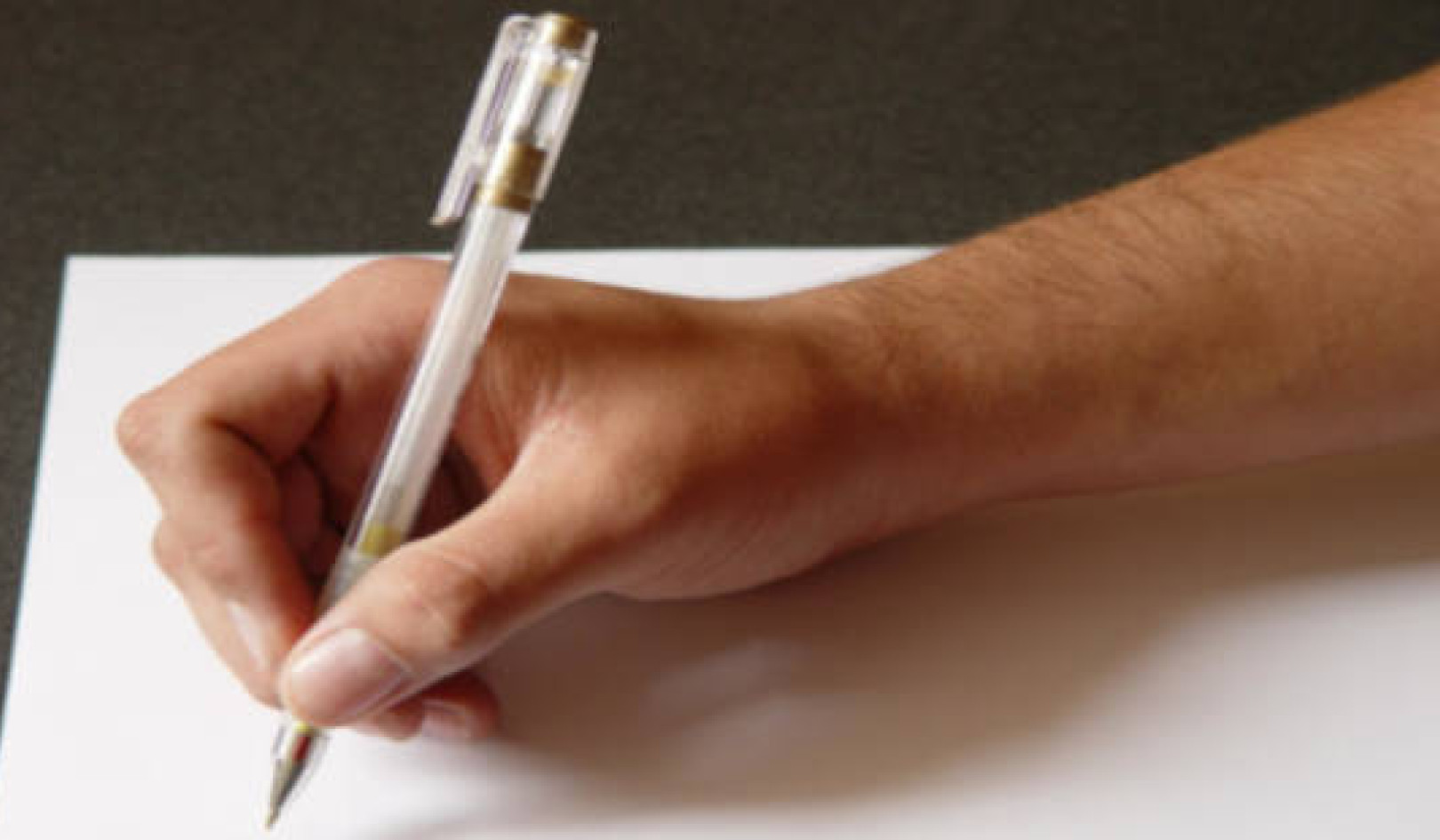
Image by Engin Akyurt
Drowsiness can be one of the most formidable and persistent obstacles to progress for beginning meditators.
Luckily, however, it is pretty simple to work through drowsiness:
- Check your posture. Make sure your back is straight. The slight but constant muscular effort it takes to hold your back straight is a great way to defend against drowsiness.
- Try changing the angle of your gaze a bit if your back is straight but drowsiness still persists. Point your eyes up at about a forty-five degree angle. The constant muscle tension necessary to maintain such a gaze will do much to lessen drowsiness.
- Change the time of day in which you practice. Choose a time of day when you feel particularly awake and alert. If drowsiness still persists, shorten your practice sessions to a minute or two. During this brief session, try to maintain perfect and intense concentration. Several very short sessions of this sort throughout the day will train your mind to associate concentration practice with a highly energetic awareness rather than a constant, groggy fight to fend off accidental napping.
- Reconsider your motivation. Do you really want to meditate right now? Is this something you are really committed to? Maybe take a few weeks off and try again.
Are You Really Ready to Meditate?
If you are really ready to meditate, rest assured you won't meet a single obstacle that you can't overcome. If you are not really ready to meditate, however, no matter how much effort you apply, your results will probably be discouraging. Like every other spiritual practice, meditation isn't for every individual at every stage in his or her development.
Perhaps there is something more urgently requiring your attention in your daily life right now. Don't abuse yourself if you are not ready to meditate. Paradoxically, by the time you are ready to meditate, you may very well discover that you no longer find formal practices of any sort necessary
Like everything else along the path, even your apparent failures can be great successes. Whether you encounter persistent drowsiness or any other obstacle to meditation, if you are not ready to meditate just now, ask yourself, Why not? Is there something you are avoiding in your daily life, some relationship left unresolved? Ironically, as you look into this very question, you are still practicing a form of meditation.
The Meditation of Self-Inquiry
One of the most direct forms of meditation, which Ramana Maharshi called self-inquiry, is to repeatedly ask yourself the simple question: Now who is it, who is it really, that's having all these problems with meditation?
The point here is not to find the "right" answer, some static label which you then apply to yourself. Rather, the goal is to watch how your desire to meditate dances alongside and within your seemingly conflicting desires to not meditate.
As your inquiry goes deeper and deeper, you begin to realize that neither of these desires is higher than the other. Neither of these desires, in and of themselves, are the real you. In fact, you are this very process of struggle, a dynamic ongoing event of desire playing against desire. When you begin to see this, you're there. That's meditation -- simply sitting back and watching yourself unfold gradually from moment to moment, simply being yourself from moment to moment.
Anxiety and the Monkey Mind
Anxiety can arise when you first sit down to meditate, and are surprised by the "monkey mind" phenomenon. The more you try to hold your mind to a single point, the more it races around like an enraged monkey trapped in a cage. The smaller you make the cage, of course, the wilder the monkey gets.
Maybe you have thought of yourself as a very calm person in the past. Now you begin to see that your mind is always racing, even in your calmest moments. This kind of identity crisis is nothing other than a growth pain. It is not that your mind is actually racing around in some new frenzy, remember. It's been doing this the whole time -- you have just never settled down long enough to notice.
With any boundary stretch, there are going to be some aches and pains. That said, if you are not experiencing some discomfort in the beginning, you have probably yet to ask the fundamental question: "Who am I, really?"
Still, it is important to stabilize your anxiety enough so that you can work with it. If you come out of a session feeling very uncomfortable and agitated, you are likely to build an unconscious association between spiritual practice and misery.
- Try relaxing your posture a bit during practice.
- Let your eyes gaze toward the floor.
- Try relaxing your concentration just a bit. Focus loosely on your object, but let your mind wander a bit if it wants to.
- Rethink concentration practice as relaxation practice. If you relax so much that you nod off a bit, then so be it. The very recognition of, "Wow, I relaxed so much that I fell asleep!" is still meditation.
Once you have built a more positive association with meditation sessions, once your mind has begun to calm down a bit, then you can go back in and attempt a more intense concentration.
A Fine Line Between Discipline and Self-Abuse
For certain personality types, there tends to be a very fine line between skillful discipline and self-abuse. Between sessions, begin to ask yourself, Now why am I doing this again? Am I mostly doing this out of guilt or out of an authentic desire to increase my capacity for love, enjoyment, and understanding in my daily life?
If you find yourself getting more and more tense as you continue your daily meditation, the best meditation may be just to quit practicing formally, but continue to ask yourself, What's all this anxiety about? What's so scary about sitting still for five minutes and concentrating on my breath?
Take a look at your daily life and maybe you will notice that you tend to surround yourself in noise and distraction. Maybe you come home from work and turn on the radio and TV, get on the phone and eat at the same time -- one stimulus after another, one distraction after another, but what exactly are you avoiding? What are you so frightened of that you spend so much time and energy trying not to notice it?
Learn to Relax
If you continually encounter anxiety in formal or informal practice, the best practice for you right now might be to take one night per week to go out to dinner by yourself at a dimly lit restaurant. Have a glass of wine with your meal and just relax. Watch how your mind tries to agitate you, get you involved in this or that dilemma. Watch it all happening and then, very gently, just bring yourself back to your food, your wine, the music in the background.
If you get distracted, so much the better. That just gives you the opportunity to consider and reconsider, Now, what am I getting distracted from? Let this be your meditation until you learn to not fight yourself so much, learn that there is nothing scary about relaxing into your own quiet, personal space. I can promise you: No matter how much you relax or how much you fight, you are not going to find anyone or anything inside your own mind other than yourself.
Connecting with Boredom?
Do anything long enough -- work, meditate, vacation, sleep -- and you are bound to get bored with it. David Lee Roth sings, "Gotta keep things moving, 'til my personality starts improving." Such is the exact mechanism of boredom. We feel -- due to an experience of deep lack, a vague hole or gap in the story of Who I Am -- we have to constantly keep things moving so as not to come head-to-head with such a "something missing."
In meditation, boredom tends to take the form of a fundamental questioning of the practice itself. "Is this really working?" you may ask. "Maybe I should go about this meditation business later," you may tell yourself, "once my personality starts improving." When you really look into it, boredom is nothing other than anxiety in disguise. It is your ego's way of saying, "Better stop now. You keep at this much longer, you're likely to learn something unpleasant about yourself."
If you can stick to your guns for just a little longer, this uncomfortable, fidgety feeling of boredom tends to break wide open into something very different. It might be some deep sadness or some very high mystical experience -- something very different from boredom, either way. You might think of your feeling of boredom as a feeling of dissatisfaction. "This meditation stuff is okay," you may think during your session, "but still, there is something missing." Once again, you're right. There probably is something very important missing, at least on one level.
Formal meditation practice aside, you can probably see this very same pattern of something missing playing out in the rest of your life. You go to dinner, you come home, you have some ice cream, you watch TV ... It's one thing after another just to avoid this feeling of boredom. You know that dinner wasn't perfect and you know that TV wasn't perfect, but isn't that just the way things work? Well, yes and no.
The more you are able to look straight and deeply into your experience of boredom, the more satisfaction you start to enjoy in the simplest of tasks. All of a sudden, dinner isn't perfect, but it's getting there. Like every aspect of your daily life, every simple, mundane experience, it is simply getting more and more perfect in its imperfection. As your vision improves, your capacity for direct perception becoming increasingly refined, you begin to conceptualize these imperfections as colorful enrichments, much in the way antiques are considered valuable not despite of, but because of, their seeming imperfections.
As you begin to pay more attention to your mind, you start to discover there is a whole symphony of experience inside every moment of what you used to call boredom. Maybe it's still not very pleasant, but at least there is always a movie on after all. Boredom was just the name, as it turns out, you were accustomed to giving this particular feature. Pleasant or otherwise, it is still a movie worth watching. It's your own movie, after all, so there has to be some compelling reason you keep showing it, right?
Still, if boredom persists past a certain point, it probably is a sign that you are ready to move on, maybe to the next level of practice, maybe to something else entirely. Try a practice that's more "exciting" for a while. Dedicate your meditation sessions to visualizing your most taboo fantasies, maybe. You know what they are. If not, sit down and wait. They'll come.
Now this is an exciting practice, no matter how you look at it. Love it, hate it -- either way you are not going to be bored. But watch how your mind starts trying to trick you. You start saying to yourself, "Well, this isn't really meditation, after all. This is just daydreaming. Maybe I should get back to the real thing, the thing I started out with in the first place." So there you go, moving and moving, waiting on your personality to do something interesting.
The best thing I can tell you about boredom is this: There's no such thing. It's a decoy, a red herring, saying, "He went that way!" Push just a little harder, hang on just a little longer, and you will start to see through your boredom. Rest assured, whatever is on the other side is never as scary, or as boring, as you thought it might be.
The Distraction of Pain
Take your pick -- backache, neck ache, leg cramp, eyes burning -- it won't be long until you run into some form of physical pain. Pain is nothing more than another distraction, another scarecrow guarding the fields of deeper awareness. It's that crazy monkey all over again, banging his knuckles on the bars, chewing his own tail -- anything to avoid sitting still inside that damn cage. Stick to your object of focus with sufficient intensity and these physical distractions will disappear. If not, switch your object of focus to your very pain itself.
Dive deeply, deeply into it. Go in way behind the hurt and what do you find? If there is going to be hurting, there has got to be someone who's hurting, right? Intensify your focus, become the hurt itself, dissolve into the very pain itself. When you do this with sufficient intensity, you discover a rather bizarre, closely guarded secret: The pain is nothing other than yourself. Which is not to say you are this bad thing, this negative thing that wishes pain and hurt on the world. Quite the opposite is true.
Let's pretend you are losing your memory very quickly, so every day you keep trying to leave yourself notes all around the house reminding you who you are, and what you are supposed to be doing that day. All too often, by the time you find these notes, you have already forgotten you were the one who wrote them so you simply discard them and go around confused all day. Something is missing, you vaguely realize, but what?
Well, that's what pain is: a kind of reminder note your higher self has left behind for you. In this context, physical pain is a way of saying, "Hey! Remember me!" See past this little scarecrow called physical pain so you can remember who left you this note in the first place. You did. The Self did.
However you may happen to feel about the various experiences you may encounter in concentration practice, you are the one making all this stuff happen -- you just can't necessarily remember why you are experiencing these things just now. Properly understood, physical pain is nothing more than a pointer, a flashing red light meant to indicate some other kind of spiritual or emotional discomfort. The more you can relax into the pain, accept the pain rather than guard against it, the less pain there is, the less distracted you are.
Ironically, tensing, both mentally and physically, in an effort to avoid or lessen pain, is the very cause of pain itself. When perceived directly, while calmly watching from outside of the habitual mental box we all tend to get lost in, you observe that physical pain hurts to the degree that it divides the whole, splits you into two parts: the hurter and the hurt. Consequently, as you merge these two, dissolve the seemingly separate experiencer of the pain into the experience of pain itself, the hurting stops.
Remember that all of this requires a balancing act. Many of us are very blood-thirsty when it comes to improving ourselves, or reminding ourselves of our whole, organic nature. We may be tempted to bring so much physical pain to ourselves that it is no longer a helpful tool, but another means of inflicting guilt and misery.
If you are not sure which variety of pain you are experiencing -- the adaptive kind or the pathological kind (not that there is really a difference) -- look into it and see. If you try and you try, but you fail to see through the pain, fail to merge with it, just give up. For a little while just try not hurting -- an extremely useful meditation in its own right. Take some aspirin. Go get a massage. Take a day off from work. Do all this, but pay attention. I can promise you, whatever was causing the physical pain in the first place is still going to be there -- it has just changed forms.
One of the lessons meditation teaches us is that body and mind are one -- there can be no physical pain without mental pain and vice versa. Even so, if you feel more comfortable recognizing yourself in nonphysical discomfort -- stress about paying your bills, for example -- than you do a physical discomfort such as a headache or a backache arising in concentration practice, then go ahead, make this avoidance of physical pain your object of focus.
Recognize Yourself -- Remember the One Self
The most important thing, whatever your individual means, is simply to recognize yourself, to remember the One Self that resides within your spiritual center. Find yourself out there enough times, recognize reflections of yourself over and over in the various problems that your daily life brings home, and you may start to find it a relief to just sit down and watch your breath. You are that, too, after all. You are your own, simple, day-to-day breathing process, but at least you know who is doing what in this scenario.
Hurts will arise, both physical and mental, only now there are no bosses to blame, no spouses, no neighbors. For better or worse, it's all you in there, watching yourself watching yourself, time and again falling into the same old patterns of tension and avoidance, repeatedly getting stuck in deeply ingrained patterns of self-abuse. Unpleasant as such experiences may be, they can be highly useful tools -- very effective reminder notes -- only this time you remember who is writing a note to whom.
Signs of Progress
Beginning meditators might want to practice for a few weeks before reading the following list of signs of progress. Otherwise, you are likely to get distracted in your practice, spending too much energy on obtaining these specific results as opposed to simply sticking with your object of focus.
Remember: The following signs are not the goal, in and of themselves. They are simply reminders that you are on the right track, fruits of your labor. The deepest sign of positive results is always an improvement in the overall quality of your daily life.
Do you feel more calm and at ease? Does your life make more sense? Are you able to relax and enjoy yourself more? Are you connecting with others around you more deeply? These are the real goals of any spiritual practice. Always shoot for these and the other signs will appear of their own accord when it is time for you to move on to another practice.
When you begin to see some of the signs listed below on a regular basis, you are probably ready to move on to the next stage.
- You can consistently sit for 20 minutes or more in intense concentration.
- Your breath becomes very slight, a bare trickle.
- Your body feels very relaxed and permeated by a kind of warm, electric tingle.
- You begin to shake, almost as if vibrating with a slight electric current. This is the result of increased kundalini, or life energy, beginning to rise up your spine.
- You feel almost paralyzed at the end of your session, having difficulty breaking your concentration from your object of focus.
- You begin to wake up in your dreams at night (a process known as lucid dreaming), or have dreams in which you are meditating.
- You feel a lightness in your head. You may feel a kind of dizzy light or fogginess between and slightly above your eyes or at the crown of your head.
- Your gaze "locks in" to your object so that you no longer need to blink or swallow.
- You have sudden bursts of intense emotion. You may feel like crying, screaming, or dancing with joy.
- You want to practice more and more.
- You accidentally fall into meditation at various times throughout the day
- You can turn on a state of concentration almost automatically.
Various meditation systems have numerous objective standards that allow the student and the teacher to measure the student's progress. There is simply no foolproof means, however, to evaluate spiritual progress by objective measures of any sort.
The only truly reliable indication of progress is your own growing feeling of confidence. Move on to the next stage when you're ready to move on. It's probably much simpler than you think.
Reprinted with permission of the publisher,
Nicholas-Hays,Inc. ©2003.
http://www.redwheelweiser.com
Article Source
Build A Better Buddha: The Guide to Remaking Yourself Exactly As You Are
by James Robbins.
 These days, the search for self-actualization and liberation can be rather overwhelming. With so many spiritual systems and teachings readily available, many of us feel confused and intimidated. We want to find just the right system or teacher--but how? In this book, James Robbins guides you beyond the seeming complexities and idiosyncrasies of various beliefs and traditions, redirecting you toward a few, simple truths common to all paths of realization. In doing so, Robbins helps you recognize and distill the core teachings of both traditional and non-traditional paths into your own unique way. With this book you learn that you already have everything you need to expand your conscious awareness, recognize where you are on your path, and fully experience the profound beauty of life and the world we live in--right here, right now.
These days, the search for self-actualization and liberation can be rather overwhelming. With so many spiritual systems and teachings readily available, many of us feel confused and intimidated. We want to find just the right system or teacher--but how? In this book, James Robbins guides you beyond the seeming complexities and idiosyncrasies of various beliefs and traditions, redirecting you toward a few, simple truths common to all paths of realization. In doing so, Robbins helps you recognize and distill the core teachings of both traditional and non-traditional paths into your own unique way. With this book you learn that you already have everything you need to expand your conscious awareness, recognize where you are on your path, and fully experience the profound beauty of life and the world we live in--right here, right now.
About the Author
 JAMES ROBBINS -- along with his wife, clinical psychologist Dr. Heather Robbins -- co-founded Dallas Mindfulness Practice, an organization that offers instruction within several traditional meditative paths and Eastern wisdom traditions.
JAMES ROBBINS -- along with his wife, clinical psychologist Dr. Heather Robbins -- co-founded Dallas Mindfulness Practice, an organization that offers instruction within several traditional meditative paths and Eastern wisdom traditions.
Readers can contact James or learn more about a variety of spiritual topics through his Web site www.dallasmindfulness.com and https://dallaswholelife.com/


























